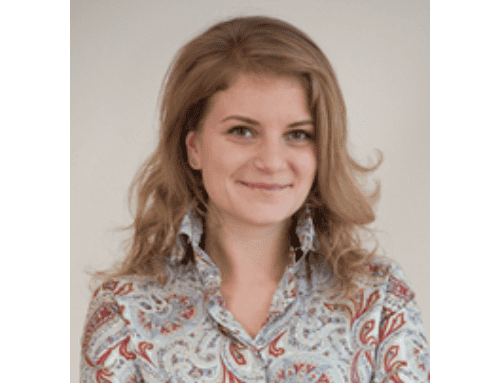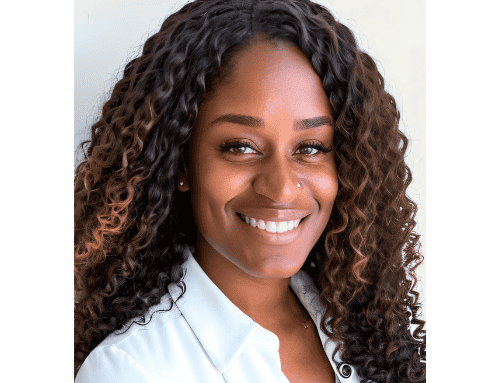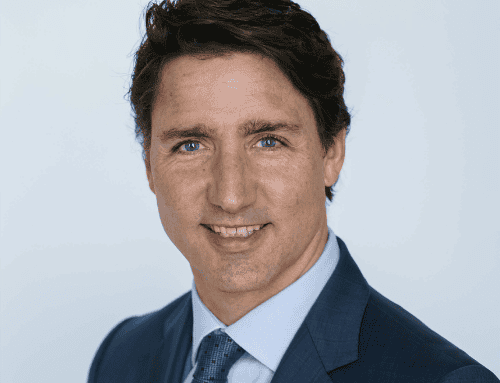With Taylor Meissner at Intersections Collective. Young people in Canada aged 12 to 17 say their mental health has declined since 2015, and the decline is more pronounced amongst young women. On top of that, children and youth who are recent immigrants or refugees, racialized, or in rural and remote communities are less likely to get appropriate mental health care.
Think social media pressures, hyper-sexualization, stereotyping, toxic masculinity, bullying, fear of rising abuse and harassment, climate anxiety, and generally feeling left behind. The list of what girls and gender-diverse young people face today is intense. Their mental health and well-being, as well as their sense of connection, belonging, and confidence have been shaken. Their healthy relationship skill development opportunities have taken a hit, too.
How can caring adults in the lives of girls and young people smooth the transition back to school? How can we support improved youth mental health, confidence, and healthy relationships?
Taylor Meissner joins us to talk about it. She is a Registered Social Worker with a Master of Social Work from the University of Toronto. She has lived both in Tkaronto and unceded Algonquin territory or Ottawa, where she currently resides. She is a Disabilities Coordinator/Learning Strategist at Carleton University. Taylor also provides counselling in private practice at Intersections Collective, mainly working with 2SLGBTQ+ adults and youth. Outside of paid work, you can find her doing grassroots/community organizing, reading a book from the library, spoiling her Rottweiler Sappho, or delighting in swimming outdoors like the mer-creature she is.
Transcript
00:00:05 Taylor
Pandemic, the health anxiety, the lockdowns and isolation associated with it, has a lot of people feeling a bit behind in things like social skills and academics.
We’re all in this together. I know we all have different experiences, and different experiences of being this in this together, but in terms of feeling like there was some time where we weren’t attending classes or we weren’t seeing people, a lot of people have that as a shared experience.
00:00:31 Andrea
What’s going on for girls and gender-diverse youth in this back-to-school season, and how can we support their well-being and mental health?
I’m Andrea Gunraj from the Canadian Women’s Foundation.
Welcome to Alright, Now What? a podcast from the Canadian Women’s Foundation. We put an intersectional feminist lens on stories that make you wonder, “why is this still happening?” We explore systemic routes and strategies for change that will move us closer to the goal of gender justice.
The work of the Canadian Women’s Foundation and our partners takes place on traditional First Nations, Métis and Inuit territories. We are grateful for the opportunity to meet and work on this land. However, we recognize that land acknowledgements are not enough. We need to pursue truth, reconciliation, decolonization, and allyship in an ongoing effort to make right with all our relations.
When I worked with young people a few years ago, they told me that the back-to-school season was a time of anxiety and excitement. As September approaches this year, I wonder how back-to-school feels for them now.
The last few years have been challenging for everyone, but girls and gender-diverse young people have had it especially tough.
In Canada, 20 to 25 percent of young people deal with at least one mental health disorder. Young people aged 12 to 17 said their mental health has declined since 2015, and the decline has been more pronounced amongst young women. On top of that, children and youth who are recent immigrants or refugees, racialized, or in rural and remote communities are less likely to receive appropriate mental health care.
Think social media pressures, hyper-sexualization, stereotyping, toxic masculinity, bullying, fear of rising abuse and harassment, climate anxiety, and generally feeling left behind. The list of what girls and gender-diverse young people face today is intense.
And as of late, young people have had a lot of interruptions at a sensitive developmental age. Especially girls and gender-diverse young people with fewer resources.
Their mental health and well-being, as well as their sense of connection, belonging, and confidence have been shaken. Their healthy relationship skill development opportunities have taken a hit, too.
How can caring adults in the lives of girls and young people smooth the transition back to school, whether they be a parent, guardian, teacher, coach, auntie, uncle, or neighbour? How can we support improved youth mental health, confidence, and healthy relationships?
Taylor Meissner (mys-ner) joins us today to talk about it. She’s a Registered Social Worker with a Master of Social Work from the University of Toronto. She’s also a Disabilities Coordinator and Learning Strategist at Carleton University. She provides counselling in private practice at Intersections Collective, mainly working with 2SLGBTQ+ youth and adults. Outside of employment, you can find her community organizing, reading a book from the library, spoiling her Rottweiler, or swimming.
00:03:52 Taylor
I’m definitely adventurous. I went on a road trip to Nova Scotia to visit my oldest friend. We didn’t realize that there was a major flood until afterwards. So I was driving down the highway and hydroplanes but, I was thinking, you know, in Nova Scotia, they’re used to these types of storms, right, I just need to pull over ground myself for a moment and then come back on and turn my four ways on, make sure that I am visible.
It wasn’t until after I returned home and my dad was freaking out that I realized that there was actually a giant flood. I’m really grateful that I was okay and my heart goes out to the Nova Scotians who are affected. Being in road trips, going surfing, all those, all those things appeal to me.
00:04:39 Andrea
We’ve seen so many articles about worsening youth mental health. What’s the situation you see in your work? And girls and gender-diverse young people – what’s happening for them, in particular?
00:04:50 Taylor
First of all, I don’t want to concern listeners out there because my job is to provide support for the people who are needing it. I do work in a office for students with disabilities who reach out when they need support. And I’ve also worked in community mental health, supporting parents, families, youth and individuals through the pandemic.
What I will say, there are more people reaching out for supports, we’re having higher numbers of registration in our disabilities office, the most common disability categories are mental health and ADHD, attention deficit/ hyperactivity disorder.
Generally, working in both community mental health and in private practice, there’s an increase in people seeking counseling, psychotherapy support. The COVID-19 pandemic, the health anxiety, the lockdowns and isolation associated with it has a lot of people feeling a bit behind in things like social skills and academics.
We’re all in this together, I know we all have different experiences and different experiences of being in this together, but in terms of feeling like there was some time where we weren’t attending classes or we weren’t seeing people, a lot of people have that as a shared experience.
You know, looking at the way that social media and AI have evolved so rapidly, there’s a lot of change in a short period of time, being able to have that media literacy, to see what’s real, what’s being done to create a better image of oneself. I think that can really affect body image of women, girls and gender diverse, non binary youth, trans youth who I worked with in the pandemic.
We had a group in the community called transcending isolation, which I know is a bit corny, but I love the puns. When we first started the group, it was really difficult for people to come on camera and use mics due to experiences of gender dysphoria.
We address that they’re doing a lot of art, like a lot of people would show off their art. The ability to come into this space beyond camera use the mic, for folks who have been marginalized, it’s a lot harder, so I think even that consideration is important. On the other hand, having access to virtual supports has been really valuable for people with disabilities, right. That has created so much access, so there’s a lot of things to consider.
I again, I work in the disability field, so looking at different manifestations of disability, like under diagnosis of ADHD or autism, due to the way that people have been socialized or the way that symptoms might present differently. Definitely being mindful of how people appear differently in the world, how comfortable people feel taking up space, and also how people are affected by media perceptions is all those things are huge.
00:07:41 Andrea
What are key considerations going to be for girls and gender diverse young people as they go back to school this fall?
00:07:47 Taylor
I want to reach out and speak just like I would speak to a student and say “you are not behind, you’re not socially awkward everyone is in the same boat” I think a lot of people stress about this. But what you can do is recognize the value and power in your strengths. Maybe you need to talk to someone to see what are my strengths. What do other people see in me, parents, guardians, teachers, role models, those people can be really great helping the youth, right.
That’s so important. Find safe people, people you trust find safe places. Where do you like to be in school? You know, do you like to spend time outside? Do you like to be part of a club? Go where your whole self is embraced or you can do the things that you want to do.
You know, if you notice, there are some things that are difficult for you, if you asked for help you deserve to receive it. Again, these trusted people, they’re there to support you, and you deserve that support, even though it can be a difficult process asking for help for some time.
00:08:54 Andrea
So here’s a question directly from a member of the Canadian Women’s Foundations community. How is echoing anxiety affecting young people, especially girls of color?
00:09:04 Taylor
Even the anecdote I told at the beginning of this podcast tied into major climate events, which I mean, I don’t know about you, but here in unseated Algonquin territory where I’m living right now, we are seeing a tornado warning or an Environment Canada warning just about every week. So it’s a really relevant issue. And I see for youth and especially youth of color a lot of really righteous well founded anger, sadness and concern.
Because there’s this idea that it’s people misusing their power. And people looking the other way that are creating or exacerbating these climate situations, I actually had a conversation with the student yesterday and she was in a human rights class and she’s a young woman of color and she was saying that, you know, one of her classmates was talking about how the West needs to help other countries and she pointed out well if it weren’t for imperialism and colonialism we might not be in this situation. And she spoke out and she actually made a friend in the class because she spoke out and they were able to connect and work together on the academic assignment and otherwise connect using your voice so important.
And for me to help with my eco anxiety, I really look to the work of Adrian Marie Brown, emergent strategy. So how the interactions that we have every day we’re able to create rippling patterns. Do what you can even if it feels overwhelming.
00:10:39 Andrea
Here’s another great community question. What role does media play in influencing mental health of girls and teens? Can media be leveraged to actually improve well-being?
00:10:49 Taylor
We know media representation is so important because if you can see it you can be it. Tangible examples of women, crew, people, trans, non binary people in power is so important. I just a lot to unpack but I just came out of the Barbie movie right where women are astronauts, women are presidents. I won’t go into that more. But you know what’s important, it’s established that this is super important.
In terms of how we can leverage it to positively improve peoples well-being, first of all, that media literacy piece, being able to pick up on context clues, being able to think critically and say, “okay, is this real or is this fake? Who is the intended audience for this? What is the intended message of this media? How is it trying to influence us?” Being able to know that is super important as background.
You know, seeking out media representation that isn’t just one body that’s, you know, never, never going to be my body. So I like the body is not an apology. I think that’s really good resource. Even just looking up tags of different kinds of representation like trans representation. You know body positive, that representation, all kinds of black, brown, indigenous women out there.
And then also creating your own media, right, like doing a photo shoot with your friends. Creating your own work, even if it’s not going to be published widely, even if you’re not ready to share it with the world just taking those pictures for yourself is so valuable.
00:12:25 Andrea
What can everyday people do to make things better for young people in their lives? Parents and guardians, significant adults?
00:12:31 Taylor
This ties into again ADHD disability perspectives, which is really doing things with young people. It’s one thing to tell someone how to do something. It’s very different to do a hands on experience, whether it’s cooking, whether it is home repair, whether it is learning any kind of new skill, doing that hands on with somebody is so valuable.
Even more generally, taking time to connect, making those offers of connect. You know, sometimes you just want to do their own thing, and that can be hard, too. Just remember, that’s developmentally appropriate, no it’s not personal. And just generally knowing that you’re a safe person to talk to, right.
You know, if you’re worried about your team doing substances or being out late, you know, it’s one thing to not to lecture them, which is totally understandable, but it’s another thing to say, hey, if you’re ever really in trouble, you can give me a call because that way, you know, if something did come up, the support is there.
00:13:35 Andrea
Time for another question from a member of our community. What are early warning signs of mental health issues in girls and teens? How can we ensure early intervention?
00:13:45 Taylor
With mental health, it’s it’s sometimes it’s hard to find what the baseline is, right? It’s hard to give general warning signs about your teen being withdrawn or your teen not enjoying things that they used to enjoy. Teens are changing at a very fast. Everybody’s baseline is different, right? So, you know, if you’re going through some difficulties in your family, just like we’re going through many difficulties in society with things like cost of living with the after effects of COVID-19 with, with climate change.
You know, there’s a lot going on. If you connect with your team regularly and you notice changes like you notice isolation when there was an isolation before, when you noticed grades slipping when grades were high before, when you notice that they totally given up on a hobby, letting them know that you’re a safe person to talk to, that you are there to support and that you won’t judge them. That’s really crucial if you notice those changes.
00:14:46 Andrea
I think a young person from our community asked this one how do I deal with society’s perception of what’s beautiful? So I feel confident about how I look.
00:14:55 Taylor
I always encourage young people to question who benefits from that. Are people making money off my diet? Are people making money off me trying to fix parts of myself? Who loves me unconditionally? Who is going to hype me up ? How can I spend more time with them or in those online communities, take care of yourself? What do I like about myself? What do I want to emphasize about myself? How can I seek out representation of folks who look like me, who I love their look?
We might not be able to be totally confident in ourselves right away, but maybe those people from our communities where we’re like, they’re killing it.
00:15:37 Andrea
Alright, Now What?
Our guest Taylor recommends you check out youth mental health services and programs in your local area.
For post-secondary students in Ontario and Nova Scotia, she says Good2Talk provides free, confidential hotline support. Go to good2talk.ca.
She also notes that the LGBT YouthLine offers confidential youth peer support by telephone, text, and chat services in Ontario. Go to youthline.ca.
For more services that may be relevant to you, visit canadianwomen.org.
I’d also encourage you to give to the Canadian Women’s Foundation this fall, as we are raising funds for girls and gender-diverse youth across Canada. Your gift will go directly to programs that: bolster mental health, emotional wellbeing and confidence, teach young people about healthy relationships and consent, provide cultural and community connection, offer mentorship, give participants opportunities to safely explore science, tech and math, sports and physical activity, media literacy, and community leadership, and provide positive, inclusive spaces where girls and gender-diverse young people can thrive. Go to canadianwomen.org to give now.
Please listen subscribe rate and review this podcast if you appreciate this content, please consider becoming a monthly donor to the Canadian Women’s Foundation.
People like you will make the goal of gender justice a reality. Visit canadianwomen.org to give today. And thank you for your tireless support.






